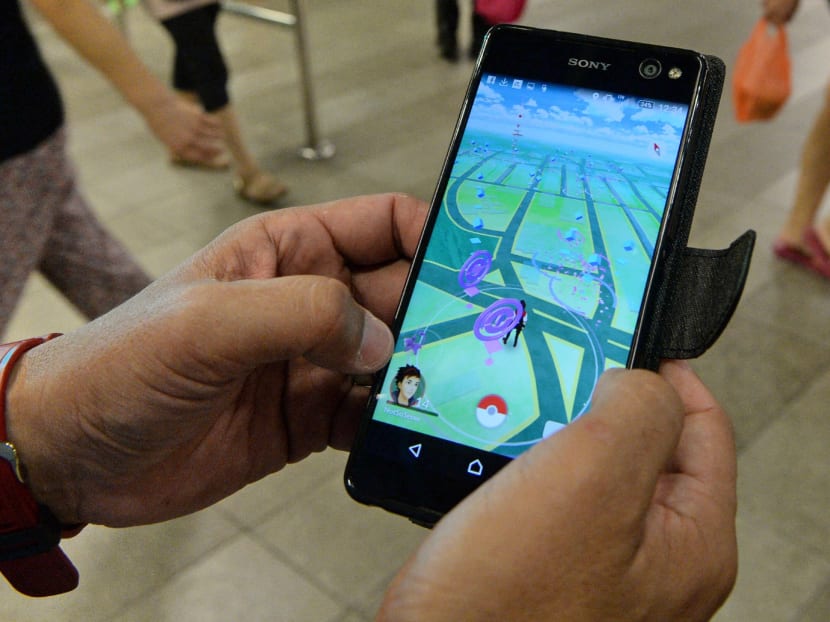Singtel, M1 and StarHub lagging in global download speeds, but experts say no rush to get 5G networks
SINGAPORE — The three main telecommunications companies in Singapore have slipped in rankings for download speeds, with other countries such as Canada and South Korea overtaking them due to their faster roll-outs of fifth generation (5G) networks for mobile and internet services.
- Recent research showed that Singtel and StarHub had fallen in rank for internet download speeds
- M1 was placed outside the top 30 in the same global study
- Relative newcomer TPG scored well for 4G availability
- Experts here said this is no cause for concern
- This is because Singapore is taking time to develop more robust 5G networks to cater to a dense population
SINGAPORE — The three main telecommunications companies in Singapore have slipped in rankings for download speeds, with other countries such as Canada and South Korea overtaking them due to their faster roll-outs of fifth generation (5G) networks for mobile and internet services.
This was among the findings compiled by international mobile analytics firm Opensignal, which were released on Tuesday (March 16) as part of its Global Mobile Network Experience Awards.
The three telcos here were ranked as follows:
StarHub dropped from the seventh to eighth spot for download speeds compared with last year, although its speeds have risen from 53.4 megabytes per second (Mbps) to 56.5 Mbps
Singtel went from 11th to 15th spot, with its download speed dropping from 50.8 Mbps to 48.8 Mbps
M1, ranked 33 in last year’s report with a 33.7 Mbps download speed, did not make the top 30 this year and its ranking was not indicated
To unearth these findings, Opensignal collected daily measurements such as network speed and the amount of time 4G is available from about 100 million smartphones worldwide.
It used data provided in the second half of last year to determine the global leaders and winners on six measures of the mobile experience: Video experience, games experience, voice app experience, download speed experience, upload speed experience and 4G availability.
Mr Sam Fenwick, senior analyst at Opensignal, said: “The future outlook for Singapore’s operators in our awards will very much depend on their ability to catch up with their international peers on 5G roll-out.”
In South Korea, 5G networks have been available since April 2019.
Its advanced 5G roll-out had enabled SK Telecom to take top spot for its download speed of 74.9 Mbps, compared with 68.1 Mbps the year before.
Other strong performers for download speed include Telus and Bell, both from Canada, which took the second and third spots respectively, and T-Mobile, Vodafone, KPN and Tele2 from the Netherlands, which took the fourth to seventh spots respectively.
Canada and the Netherlands launched their 5G networks last year.
WHAT ANALYSTS SAY
Commenting on the findings by Opensignal, telecommunications experts here said that there is no need for Singapore to rush to roll out 5G technology.
Mr Kenny Liew, who is a technology, media and telecommunications analyst at market research firm Fitch Solutions, said that in the past year, the Covid-19 pandemic had forced many people to stay at home, and given the strong nationwide fibre penetration and robust 4G networks, “there wasn’t an urgent need to develop new networks”.
He added that this is also because there was then a dearth of devices that were compatible with 5G services.
With the launch of 5G-capable devices in the market, Mr Liew believes that 5G adoption will “gradually pick up steam and operators will focus more efforts into building out their networks in the coming year”.
Agreeing, independent infocomms analyst Foong King-Yew, who has more than 25 years of experience in the telecomms industry, said that there is no rush to pursue 5G networks because the initial 5G launches — known as 5G non-standalone (NSA) — depended on existing 4G LTE infrastructure.

The 4G LTE network is stronger than 3G networks, but weaker than 4G. If used by many people at once, such 5G NSA may still be slower than full-fledged 5G standalone networks, which are more robust but take longer to develop.
“Back then, 5G (NSA) was more like ‘4.5G’… you don’t get the optimal 5G performance,” Mr Foong said.
It was announced earlier that a Singtel and StarHub-M1 joint venture will proceed to create 5G standalone networks that deliver full-fledged 5G capabilities. This is expected to be deployed by 2025.
Mr Alex Tan, executive director of tech investment firm Qala Investments, who has about 20 years of experience in the telecomms industry, said: “The key differentiator is that 5G (standalone) caters to a high density (of end-users) and low latency (lag time), whereas existing infrastructure does not cater as well to high-density locations, and the latency might not be as good.”
Despite Singapore’s telcos sliding down the charts, StarHub stayed in top spot for download speeds in Southeast Asia, and Singtel topped the region for upload speeds.
Singapore’s fourth telco, TPG, did not appear on the download or upload rankings, but was among the global high-performers in metrics such as video experience and voice application experience. It was first among Singapore’s telcos for 4G availability.
Mr Liew said that the reason for TPG’s good ranking is that its network is entirely 4G, which means that the service availability will definitely be 4G, as opposed to the other telcos, which may switch to 3G in indoor areas.
“As a whole, it remains clear that the networks of the incumbents are more developed and available, given that TPG is still a relatively new entrant and still in the process of building out its mobile network,” he said.
OTHER METRICS
For video experience, which measures the video quality of users on 3G or 4G networks:
Singtel rose from 14th place last year, to 13th place in this year’s report
StarHub rose from 11th to 8th
M1 fell from 12th to 19th
TPG, which was not ranked last year, was ranked 29th this year
For upload speed experience:
Singtel fell marginally from 5th to 6th place
StarHub maintained its 7th placing
M1 fell from 6th to 12th
TPG was not ranked in both years
For 4G availability, which measures the average proportion of time that users spend with a 4G connection on each operator’s network:
- Singtel fell from 27th to 31st
StarHub attained 30th place, after being unranked the previous year
M1 fell from 26th to 28th
TPG fell from 11th to 16th
WHAT THE TELCOS SAY
Responding to queries from TODAY, StarHub’s chief technology officer Chong Siew Loong said: “We are particularly proud that StarHub achieved the best-in-Southeast Asia scores in download speed experience and video experience.
“With a keen eye on our customers’ needs, we monitor our mobile network performance closely and continually invest, build and upgrade our infrastructure, all while constantly optimising our radio network in terms of both coverage and performance.”
M1 said that the firm is heartened to see that it continues to be highly regarded alongside some of the world’s leading telcos.
“However, it is worth noting that factors such as geography and landscape of the diverse countries and allocated 4G spectrum have a role to play in influencing the results,” it added.
“M1 continually measures our performance against the local industry benchmarks and remains committed to innovation and providing great customer experiences.”
TPG’s chief technology officer Benjamin Tan said that it is pleased to be a global high-performer in several areas, noting that its network infrastructure fully operates on 4G capabilities and is “built to provide the most advanced 4G network to our customers in Singapore”.
On being a global high-performer in the voice app experience, Mr Tan said that it is “a testament to TPG's focus on voice over LTE technology, which refers to voice calls taking place on the 4G network as opposed to the 3G network”.
M1 and StarHub added that there will be upcoming standalone 5G networks from the telcos, while TPG said that it plans to progressively roll out 5G services to users soon.












